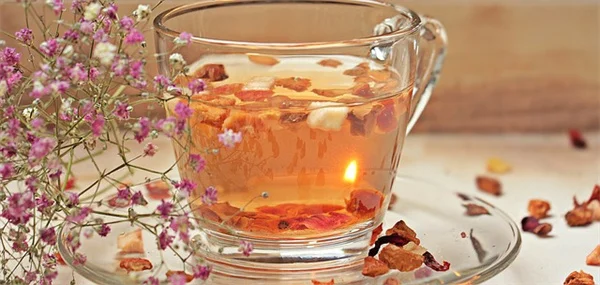What Not to Clean Vinyl Plank Flooring With: 5 Common Mistakes to Avoid
What should you not clean vinyl plank flooring with? The answer is simple: you should avoid harsh chemicals and abrasive tools. Using the wrong cleaning products can lead to lasting damage, such as fading, discoloration, or even voiding your warranty. I can't stress enough how crucial it is to understand what to steer clear of when maintaining your beautiful floors. You don’t want to be the one who accidentally ruins a stunning vinyl plank floor by using ammonia-based cleaners or steel wool. In this article, we’ll dive into the essential cleaning do's and don’ts specifically tailored for vinyl plank flooring. By the end, you’ll be equipped with the knowledge to keep your floors looking fantastic and prolong their lifespan. Let’s get started! 🧽✨
E.g. :How to Clean Laminate Floors: 7 Essential Tips for Sparkling Results
- 1、Vinyl Plank Flooring 101: What You Need to Know
- 2、The Absolute No-No List for Vinyl Floor Cleaning
- 3、Smart Cleaning Solutions That Actually Work
- 4、Common Cleaning Mistakes (And How to Avoid Them)
- 5、Pro Tips for Keeping Floors Looking Brand New
- 6、Final Thoughts: Love Your Floors and They'll Love You Back
- 7、FAQs
Vinyl Plank Flooring 101: What You Need to Know
1. The Basics of Vinyl Plank Flooring
Let's start with the basics - vinyl plank flooring is like the superhero of home flooring options. It gives you that gorgeous hardwood look without the high price tag or maintenance headaches. Made from durable synthetic materials, it's waterproof, scratch-resistant, and comes in endless styles to match any decor.
But here's the thing - even superheroes need proper care. That's why understanding how to clean vinyl plank flooring correctly is so important. I've seen too many beautiful floors ruined by well-meaning homeowners using the wrong cleaning methods. Trust me, you don't want to be that person!
2. Why Cleaning Methods Matter
Did you know that using the wrong cleaner can actually void your flooring warranty? That's right - manufacturers are serious about proper maintenance. The right cleaning routine keeps your floors looking fresh and protects your investment.
Here's a quick comparison of what happens with proper vs. improper cleaning:
| Proper Cleaning | Improper Cleaning |
|---|---|
| Maintains shine and color | Causes fading and discoloration |
| Preserves protective layers | Wears down finish prematurely |
| Extends floor lifespan | Leads to costly replacements |
The Absolute No-No List for Vinyl Floor Cleaning
 Photos provided by pixabay
Photos provided by pixabay
1. Harsh Chemicals: The Silent Floor Killers
Ammonia-based cleaners might work great on your windows, but they're public enemy #1 for vinyl floors. I learned this the hard way when I accidentally used one on my brand new flooring - let's just say the results weren't pretty.
Other chemicals to avoid include:
- Bleach (unless you want yellow streaks)
- Undiluted vinegar (too acidic)
- Oil-based soaps (leaves nasty residue)
2. Abrasive Tools: The Scratch Creators
Ever tried using steel wool on your floors? Yeah, don't. Even stiff-bristled brooms can leave micro-scratches that dull your floor's shine over time.
Instead, grab these gentle alternatives:
- Microfiber mops (my personal favorite)
- Soft-bristle brooms
- Swiffer-style dusters
Smart Cleaning Solutions That Actually Work
1. The Perfect DIY Cleaning Mix
Here's my go-to recipe that works like magic:
- 1 gallon warm water
- 1/4 cup white vinegar (diluted!)
- 2 drops dish soap
- 5 drops essential oil for freshness (optional)
Pro tip: Always test any cleaner in an inconspicuous area first. Better safe than sorry!
 Photos provided by pixabay
Photos provided by pixabay
1. Harsh Chemicals: The Silent Floor Killers
Not into DIY? No problem! These commercial cleaners get my stamp of approval:
- Bona Hard-Surface Floor Cleaner
- Method Squirt + Mop Wood Floor Cleaner
- Black Diamond Stoneworks Floor Cleaner
Remember: Always check the label for vinyl compatibility before purchasing.
Common Cleaning Mistakes (And How to Avoid Them)
1. The "More Water is Better" Myth
Here's a question: Do you think soaking your floors makes them cleaner? If you answered yes, we need to talk!
The truth is, excess water is vinyl flooring's worst nightmare. It can seep into seams and cause:
- Warping
- Mold growth
- Adhesive breakdown
2. Forgetting About Preventative Care
90% of floor damage happens because people skip these simple preventative steps:
- Place doormats at every entrance
- Use felt pads under furniture
- Trim pet nails regularly
- Wipe spills immediately
See? Simple stuff that makes a huge difference!
Pro Tips for Keeping Floors Looking Brand New
 Photos provided by pixabay
Photos provided by pixabay
1. Harsh Chemicals: The Silent Floor Killers
Here's my foolproof weekly cleaning schedule:
- Daily: Quick sweep or dry mop
- Weekly: Damp mop with proper cleaner
- Monthly: Deep clean with approved products
- Seasonally: Check for wear and tear
2. Dealing With Tough Stains
Got a stubborn stain? Don't panic! Try this:
- Blot (don't rub!) the spill
- Make a paste of baking soda and water
- Gently apply with soft cloth
- Rinse with damp cloth
- Dry immediately
For really tough stains, consult your flooring manufacturer's guidelines.
Final Thoughts: Love Your Floors and They'll Love You Back
At the end of the day, vinyl plank flooring is one of the most forgiving and durable options out there. With just a little knowledge and the right care routine, you can keep your floors looking fabulous for decades.
Remember: When in doubt, always check with your flooring manufacturer. They know their product best and can provide specific care instructions for your particular flooring.
Now go enjoy those beautiful floors! 🎉
Taking care of your vinyl plank flooring is essential to ensure it stays looking great for years to come. We've highlighted what you should not clean vinyl plank flooring with, including harsh chemicals and abrasive tools that can cause damage. By sticking to gentle cleaning solutions and proper techniques, you can avoid costly mistakes and maintain the beauty of your floors. Remember, I can't stress enough how crucial it is to follow these tips to protect your investment. So, don't hesitate to reach out to your flooring manufacturer for their specific recommendations if you're ever unsure. Let's keep those floors shining! ✨
Additionally, it's worth noting that being proactive with your cleaning routine can save you a lot of hassle down the line. Regular maintenance and quick responses to spills can prevent long-term damage. If you're looking to dive deeper, consider exploring other flooring options or upgrades that might complement your vinyl planks. After all, your home is your sanctuary, and every detail counts! 🏡
E.g. :How to Clean Vinyl Plank Flooring
FAQs
1. What is vinyl plank flooring, and why is it popular?
Vinyl plank flooring is a fantastic choice for homeowners looking for a stylish yet affordable flooring option. It mimics the beautiful look of hardwood without the hefty price tag or maintenance hassles. The materials used are durable, making it waterproof and scratch-resistant, which is perfect for busy households. This combination of style and functionality is why so many people are choosing vinyl plank flooring for their homes.
2. Can using the wrong cleaner really damage my vinyl floors?
Absolutely! Using the wrong cleaner can void your warranty and cause significant damage to your vinyl floors. For example, ammonia-based cleaners can strip away protective layers, leading to fading and discoloration. I always recommend checking with your manufacturer for approved cleaning products to ensure your floors stay in top shape and to protect your investment.
3. What are some common mistakes people make when cleaning vinyl floors?
One major mistake is using too much water while cleaning. Excess moisture can seep into seams and create problems like warping or mold growth. Another common error is neglecting preventative care, such as using doormats and felt pads under furniture. These simple steps can save you from costly repairs and keep your floors looking great!
4. How often should I clean my vinyl plank flooring?
It's essential to establish a cleaning routine to keep your floors in excellent condition. I suggest a daily quick sweep or dry mop, a weekly damp mop with an appropriate cleaner, and a monthly deep clean with approved products. Don't forget to check for wear and tear seasonally; this proactive approach will extend the life of your flooring!
5. What should I do if I get a tough stain on my vinyl floor?
If you encounter a stubborn stain, don't stress! Start by blotting the spill gently—never rub it. Next, make a paste of baking soda and water, then apply it with a soft cloth. Rinse with a damp cloth and dry immediately. For stubborn stains, always check your manufacturer's guidelines for specific recommendations. This method usually works wonders!


